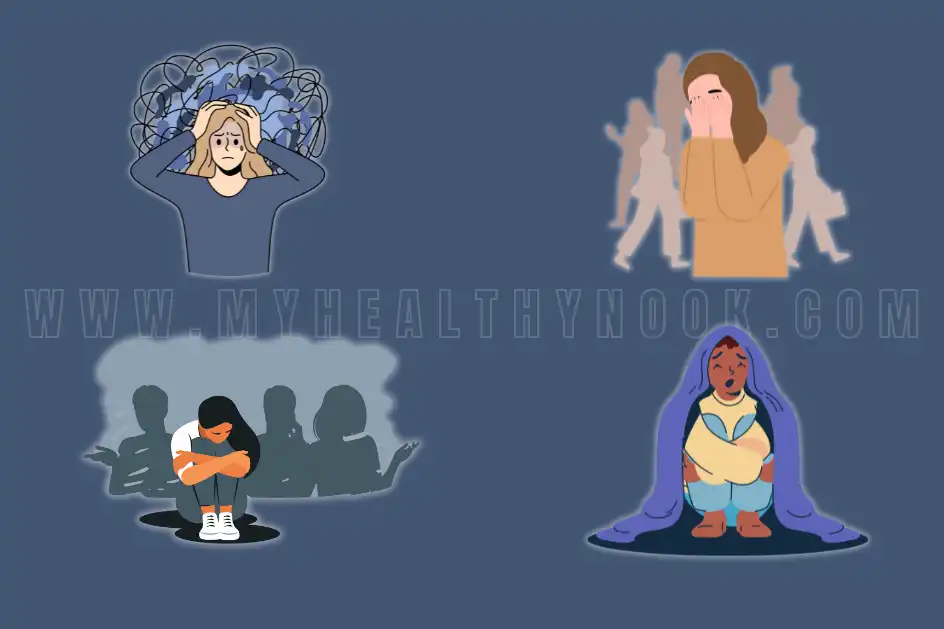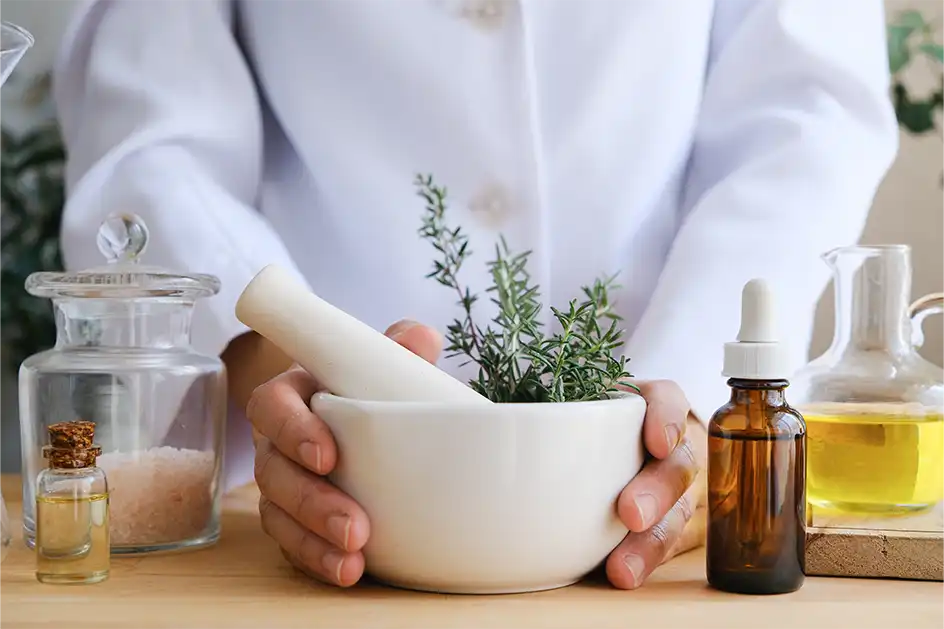How to treat anxiety disorder is a question faced by millions of individuals worldwide, as anxiety disorders are among the most common mental health conditions. Characterized by excessive worry, fear, and tension, anxiety disorders can significantly impact daily life and overall well-being. Fortunately, a variety of treatments, therapies, and lifestyle adjustments can help manage anxiety symptoms effectively. This article delves into symptoms, types of treatments, and strategies for long-term anxiety relief.
Understanding Anxiety Disorders
Anxiety disorders are characterized by excessive, persistent fear or worry that disrupts daily activities. Unlike normal feelings of nervousness, anxiety disorders can be overwhelming and debilitating. Anxiety disorders can take several forms, including:
- Generalized Anxiety Disorder (GAD): Characterized by persistent, excessive worry about various aspects of life, such as work, health, or family.
- Panic Disorder: Involves sudden, intense fear or discomfort, often accompanied by physical symptoms such as heart palpitations, sweating, or trembling.
- Social Anxiety Disorder: A fear of social situations and being judged or embarrassed by others.
- Phobias: Intense fear of a specific object, activity, or situation, such as flying, heights, or certain animals.
For a comprehensive overview of anxiety disorders, you may refer to the National Institute of Mental Health (NIMH).

Symptoms of Anxiety Disorders
Understanding the symptoms of anxiety disorders is crucial for identifying and addressing them. Anxiety symptoms can vary depending on the specific disorder but often include both physical and emotional symptoms:
- Physical Symptoms: These can include rapid heartbeat, sweating, shaking, dizziness, muscle tension, and gastrointestinal issues.
- Emotional Symptoms: Persistent worry, excessive fear, feelings of restlessness, and irritability are common emotional symptoms of anxiety.
- Cognitive Symptoms: Difficulty concentrating, intrusive thoughts, and racing thoughts often accompany anxiety disorders.
Symptoms may range from mild to severe, and they can be managed with a combination of therapies, medications, and lifestyle changes. For a detailed guide on symptoms, the Mayo Clinic provides valuable insights.

Anxiety Disorder Treatments: Finding the Right Approach
There are multiple anxiety disorder treatments available, from conventional medical therapies to holistic and natural remedies. Treatment plans vary depending on the severity and type of anxiety disorder.
1. Cognitive-Behavioral Therapy (CBT)
Cognitive-behavioral therapy is one of the most effective treatments for anxiety disorders. CBT focuses on identifying and modifying negative thought patterns and behaviors that contribute to anxiety. Through structured sessions, individuals learn coping mechanisms to manage their anxiety and confront irrational fears.
Benefits of CBT for Anxiety:
- Teaches skills to challenge irrational thoughts
- Helps individuals gradually face their fears
- Reduces avoidance behaviors associated with anxiety
For more information, American Psychological Association (APA) offers resources on the effectiveness of CBT.
2. Medication for Anxiety Management
Medication is often prescribed for individuals with moderate to severe anxiety. Common types of medication include:
- Selective Serotonin Reuptake Inhibitors (SSRIs): SSRIs, like sertraline and fluoxetine, are often prescribed to treat anxiety disorders by boosting serotonin levels in the brain.
- Benzodiazepines: These are fast-acting medications for short-term anxiety relief but may cause dependence if used long-term.
- Beta-Blockers: Used to control physical symptoms of anxiety, such as rapid heartbeat and shaking, especially in situations like public speaking.
Medication should always be discussed and monitored by a healthcare provider.
Natural Remedies for Anxiety
Many individuals are interested in natural remedies for anxiety, as these approaches can complement traditional treatments or provide support for those with milder symptoms.
1. Herbal Supplements
Some herbal supplements may help reduce anxiety symptoms. It’s important to consult a healthcare provider before starting any supplement.
- Valerian Root: Known for its calming effects, valerian root is often used to reduce stress and promote relaxation.
- Chamomile: A calming herb that is commonly used to relieve mild anxiety and improve sleep.
- Lavender: Lavender oil and tea have calming properties that may help alleviate anxiety symptoms.
2. Mindfulness and Meditation
Practicing mindfulness and meditation can reduce stress and anxiety by helping individuals focus on the present moment, reduce rumination, and cultivate a sense of calm.
- Mindfulness Meditation: This technique involves paying attention to thoughts, feelings, and bodily sensations without judgment.
- Breathing Exercises: Simple breathing exercises, like deep breathing and box breathing, can activate the body’s relaxation response.
For guidance on mindfulness and its benefits, refer to resources from Mindful.org.
3. Exercise and Physical Activity
Regular physical activity is known to improve mood and reduce anxiety symptoms. Activities like walking, swimming, cycling, or practicing yoga release endorphins, which are natural mood enhancers, and can help manage stress levels.
The Anxiety and Depression Association of America (ADAA) provides additional resources on how exercise can support anxiety management.

Anxiety Therapy Options
In addition to CBT, other anxiety therapy options are effective for managing anxiety symptoms:
1. Exposure Therapy
Exposure therapy helps individuals confront their fears gradually in a safe, controlled environment. This type of therapy is often used for phobias, social anxiety, and PTSD, allowing individuals to build resilience by facing anxiety triggers step-by-step.
2. Acceptance and Commitment Therapy (ACT)
ACT combines mindfulness with behavioral therapy to help individuals accept difficult emotions rather than trying to suppress them. ACT encourages people to commit to actions that align with their values, helping them lead fulfilling lives despite their anxiety.
3. Group Therapy
Group therapy provides a supportive environment where individuals with anxiety can connect, share experiences, and learn from others dealing with similar challenges. Group settings are beneficial for building social skills and feeling less isolated.

Tips for Managing Anxiety Symptoms Daily
Managing anxiety symptoms often requires ongoing strategies and lifestyle changes. Here are some daily practices to help cope with anxiety:
1. Maintain a Healthy Lifestyle
A balanced diet, adequate hydration, and sufficient sleep contribute to overall mental health. Avoid excessive caffeine and sugar, which can exacerbate anxiety symptoms.
2. Create a Daily Routine
Establishing a daily routine provides structure and predictability, which can reduce feelings of anxiety. Prioritize regular mealtimes, exercise, work, and relaxation time.
3. Use Journaling as a Coping Tool
Journaling allows individuals to track their thoughts, reflect on their emotions, and identify triggers. Writing about anxious thoughts can help externalize them, making them feel less overwhelming.

Learning how to treat anxiety disorder involves a combination of therapeutic approaches, lifestyle changes, and daily habits to help alleviate symptoms. Whether through therapy, medication, natural remedies, or lifestyle modifications, managing anxiety is a journey. Remember, anxiety is treatable, and there are many paths to achieving relief.
For anyone experiencing symptoms of anxiety, it is essential to seek help from a mental health professional who can provide personalized guidance. With the right support, individuals can find effective ways to manage anxiety and enjoy a fulfilling, balanced life.

